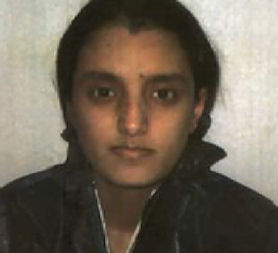Student jailed for stabbing of MP Stephen Timms
A student who tried to murder Labour MP Stephen Timms, as punishment for his support for the war in Iraq, is sentenced to life in prison with a minimum term of 15 years.

21-year-old Roshonara Choudhry was convicted yesterday of attempted murder for stabbing her local MP Stephen Timms twice in the stomach at his constituency surgery in east London in May.
She told police she wanted to punish Mr Timms for having voted for the Iraq war. Choudhry’s attack on Mr Timms is thought to be the first al-Qaeda-inspired attempt to assassinate a politician on British soil.
Ms Choudhry showed no reaction as she was sentanced – but three men in public gallery started shouting at the judge. “They were cursing at the judge,” said Emily Reuben who was in court for Channel 4 News, “they were shouting British troops out of Afghanistan.”
It was discovered that Ms Choudhry had also drawn up a list of other MPs who had backed the UK’s military action.
Danger to MPs
Mr Justice Cooke, sentencing Choudhry, said: “You said you ruined the rest of your life. You said it was worth it. You said you wanted to be a martyr.”
He added: “You intended to kill in a political cause and to strike at those in Government by doing so. You did so as a matter of deliberate decision-making, however skewed your reasons, from listening to those Muslims who incite such action on the internet.
“You do not suffer from any mental disease. You have simply committed evil acts coolly and deliberately.”
The judge said Choudhry would continue to be a danger to Members of Parliament for the foreseeable future.
After the sentence was passed, the videolink was turned off as a group of men began shouting in the public gallery “Allahu akbar” (“God is great”), “British go to hell” and “Curse the judge”.
A small demonstration was taking place outside the court.

‘I wanted to kill him’
Roshonara Choudhry had refused to challenge any of the evidence as she said she did not recognise the jurisdiction of the court.
When asked by police why she had stabbed him twice, Choudhry said: “I was not going to stop until someone made me. I wanted to kill him… I was going to get revenge for the people of Iraq.”
Asked why, she answered: “Punishment.”
“He shouted at me ‘What was that for?’ I think I stabbed him again. I think I did it twice. I tried to attack him again. People started to scream.”
A knife with a five-inch blade was found wrapped in a red towel.
Choudhry said she had taken two knives – which were found to have been both newly purchased and “razor sharp” – in case one broke during the attack.
Extremist sermons
She is believed to have been influenced by extreme Islamist sermons on the internet, including those of Anwar al-Awlaki, an Islamist cleric who is now in Yemen. Al-Awlaki is thought to be behind the bomb plot involving packages sent from Yemen, one of which was found at East Midlands airport last week.
The package contained explosives inside a printer cartridge, and its discovery led to the Home Secretary Theresa May announcing a ban on airmail and air freight from Yemen and a ban on passengers carrying large toner cartridges in their hand luggage.
The Home Office is also investigating ways to have extremist videos like those found on Roshana Choudhry’s computer to be removed from websites. The Guardian reported that examination of her computer showed Choudhry downloaded the Islamist material late in 2009.
YouTube has reportedly begun taking down al-Qaeda videos from the web after the UK government pressured to White House to act against such content.
A number of clips by Anwar al-Awlak have been deleted from the social video website because the content “violated YouTube’s terms of service.
Website ban
The news came after a senior Government minister urged the United States to order American websites hosting al-Qaeda videos to take them down.
Security Minister Baroness Neville-Jones was said to have used a recent visit to Washington to argue that such sites incited “cold-blooded murder” and would be banned in the UK. Baroness Neville-Jones spoke about the UK’s new National Security Strategy in a speech to the influential Brookings Institute.
In private remarks made after, Baroness Neville-Jones appealed to the US to take action to remove jihadi material from websites which would be banned in the UK, according to the Daily Telegraph.
“Those websites would categorically not be allowed in the UK. They incite cold-blooded murder and as such are surely contrary to the public good,” she said in private remarks to the institute quoted by the newspaper.
“If they were hosted in the UK then we would take them down but this is a global problem. Many of these websites are hosted in America and we look forward to working even more closely with you to take down this hateful material.”
A Home Office spokesman said that the Government always pressed for jihadi material to be removed from the internet.
“Where sites are hosted abroad our ability to close them down is limited. Nevertheless, we work with our overseas counterparts to encourage them to remove them,” the spokesman said.